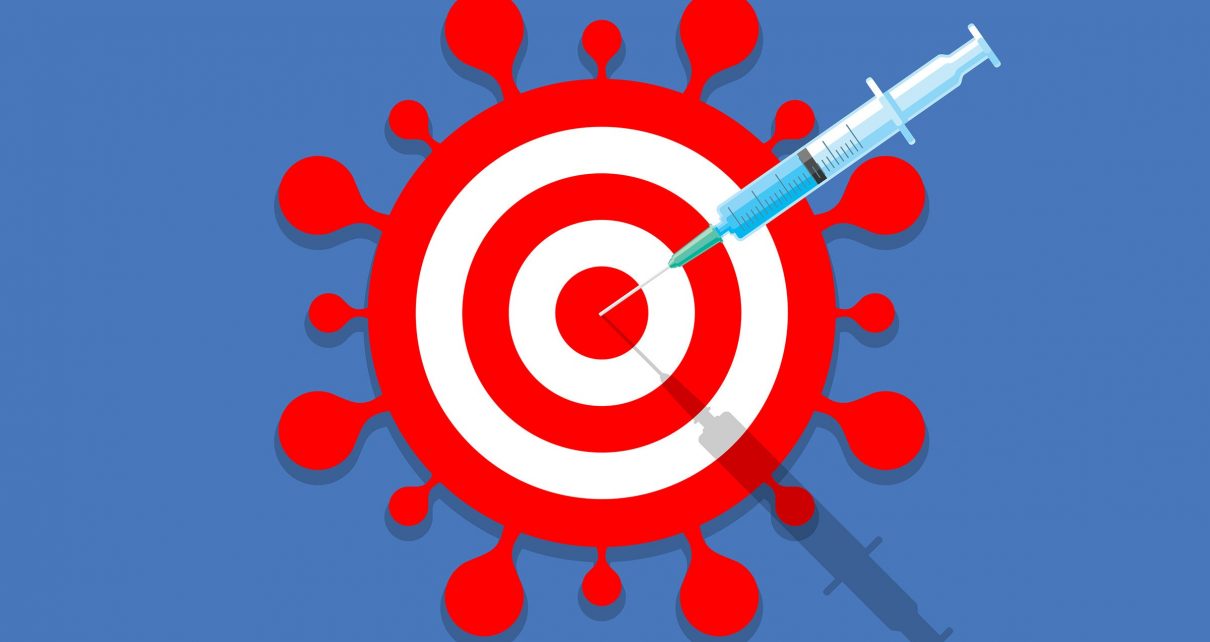Young, healthy people will be intentionally exposed to the virus responsible for COVID-19 in a first-of-its kind ‘human challenge trial’, the UK government and a company that runs such studies announced on 20 October. The experiment, set to begin in January in a London hospital if it receives final regulatory and ethical approval, aims to accelerate the development of vaccines that could end the pandemic.
Human challenge trials have a history of providing insight into diseases such as malaria and influenza. The UK trial will try to identify a suitable dose of the virus SARS-CoV-2 that could be used in future vaccine trials. But the prospect of deliberately infecting people—even those at low risk of severe disease—with SARS-CoV-2, a deadly pathogen that has few proven treatments, is uncharted medical and bioethical territory.
Proponents of COVID-19 challenge trials have argued that they can be run safely and ethically, and that their potential to quickly identify effective vaccines outweighs the low risks to participants. But others have raised questions about the safety and value of these studies, pointing out that large-scale efficacy trials involving tens of thousands of people are expected to deliver results on several COVID-19 vaccines soon.
“Deliberately infecting volunteers with a known human pathogen is never undertaken lightly. However, such studies are enormously informative about a disease,” said Peter Openshaw, an immunologist at Imperial College London and investigator on the study, in a press statement. “It is really vital that we move as fast as possible towards getting effective vaccines and other treatments for COVID-19, and challenge studies have the potential to accelerate and de-risk the development of novel drugs and vaccines.”
Dose testing
The planned COVID-19 challenge study will be led by a Dublin-based commercial clinical-research organization called Open Orphan and its subsidiary hVIVO, which runs challenge trials on respiratory pathogens. It will take place in the high-level isolation unit of the Royal Free Hospital in north London, says Open Orphan executive chair Cathal Friel.
The UK government’s COVID-19 Vaccine Taskforce has agreed to pay the company up to £10 million (US$13 million) to conduct the trial, with the possibility of contracting Open Orphan to run several more to test various vaccines. The UK Medicines and Healthcare Regulatory Agency (MHRA), which regulates clinical trials in the United Kingdom, and an ethical review committee, still need to approve the initial trial and its design, and that of future studies.
The initial trial will involve an estimated 30–50 participants, says Andrew Catchpole, a virologist and the chief scientific officer at Open Orphan who is leading the work. It is open only to healthy adults aged 18–30.
The precise design of the study has not been finalized. But it is likely that a small number of participants will receive a very low dose of a SARS-CoV-2 ‘challenge strain’ derived from a currently circulating virus and grown under stringent conditions. If none or few of the participants become infected, the researchers will seek permission from an independent safety monitoring board to expose participants to higher doses. This process will be repeated until researchers identify a dose that infects most of those exposed, says Catchpole.
Once an appropriate dose is identified, Open Orphan could be asked to run a series of challenge trials testing several vaccines. Catchpole says that the design of these trials, including which vaccines will be included, has not been determined. He envisions that some trial participants will receive a placebo injection instead of a vaccine, but he also says that head-to-head trials comparing two or more vaccines could be run. Other vaccine studies that the company runs typically enrol 40–50 volunteers for each trial arm, he says.
Catchpole says that his team will take every precaution against participants in the initial trial developing severe disease. Volunteers will be treated with an antiviral drug, such as remdesivir, once a nasal swab gives a positive result for SARS-CoV-2 genetic material. In addition to age and health, participants will be screened for risk factors that have been associated with severe COVID-19.
Selecting participants at the lowest risk is the most important safety step in running a challenge trial, says Matt Memoli, an infectious-disease physician and virologist at the US National Institute of Allergy and Infectious Diseases (NIAID) in Bethesda, Maryland. “Once you’ve given that virus to the person, anything’s possible,” he says. “You can’t control it, you can only react to it.”
If Open Orphan moves on to vaccine trials, it will aim to recruit around 500 participants altogether, but Friel says the company will need to screen many times more people to identify suitable volunteers. An ethical review board will determine how to compensate participants. Open Orphan typically pays volunteers around £4,000 for their time, says Catchpole.
Ethical issues
There is a concern that people will participate for the money without appreciating the risks, says Nir Eyal, a bioethicist at Rutgers University in New Brunswick, New Jersey, who has argued that COVID-19 challenge trials can be run safely and ethically. But a well-designed online course, for instance, could ensure that participants understand the risks, he says.
Ensuring that participants understand the limitations of challenge trials will also be important, says Seema Shah, a bioethicist at Lurie Children’s Hospital and Northwestern University in Chicago, Illinois. With phase III trials of numerous COVID-19 vaccines in the works, she thinks it unlikely that challenge trials will speed the development of the first vaccines. Instead, their payoff could lie in helping to test later-generation vaccines or laying the groundwork for fresh insights into the disease. In this context, says Shah, “It becomes a little bit harder to justify them, and we need to take a close look at risks.”
Meagan Deming, a vaccine scientist and virologist at the University of Maryland School of Medicine in Baltimore, sees challenge trials as more appropriate for studying basic aspects of SARS-CoV-2 infection—such as the potential for reinfection or how previous exposure to cold-causing coronaviruses influences susceptibility to COVID-19—than for vetting vaccines. Because such trials are likely to involve only young, healthy people, they might not reveal much about how vaccines could protect those most at risk of severe disease, such as older people and those with conditions such as diabetes, Deming says. “There’s a reason we don’t have a lot of vaccines approved by challenge models, because they don’t apply to everyone and you want a vaccine to protect almost everyone,” she says.
Phase III trials might not offer clear evidence of whether vaccines work in older people, because of their low participation in those trials, says Peter Smith, an epidemiologist at the London School of Hygiene and Tropical Medicine who has been involved in challenge trials. Researchers will probably need to determine vaccines’ likely effectiveness in older people, on the basis of how their immune systems respond to COVID-19 vaccines before exposure to the virus. And compared with field trials, challenge studies are better at identifying the types of immune response that predict whether a vaccine is likely to work or not, adds Memoli.
Other trials
The United Kingdom isn’t the only country investigating COVID-19 challenge trials. Belgium’s government has committed €20 million (US$23.6 million) for facilities to host challenge trials, potentially involving COVID-19. NIAID is funding the development of two SARS-CoV-2 challenge strains by a lab at Colorado State University in Fort Collins, and a team led by Memoli is also laying the groundwork for such trials. In a statement, NIAID said it was awaiting data from phase III studies before making decisions on COVID-19 challenge trials.
Proponents of the trials argue that the consequences of delaying them should be taken into account, alongside the risks of going forward. For instance, Eyal and economists Pedro Rosa Dias and Ara Darzi at Imperial College London have calculated that speeding up the development of COVID-19 vaccines by one month would avert the loss of 720,000 years of life and prevent 40 million years in poverty, mostly in lower-income countries.
But Deming thinks that challenge trials should wait until their value is clearer and the risks can be better mitigated, for instance by deploying more potent therapies. “We don’t yet know enough about this disease to say for this person: you will not die,” she says. “We’ve learned so much in the past nine months. In a year, we will be able to do this safely.”
This article is reproduced with permission and was first published on October 20 2020.




